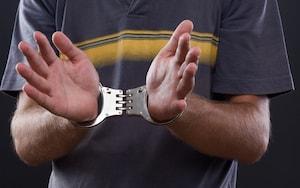Recent Blog Posts
Changes Enacted to Texas Laws Regarding Medical Cannabis

Many states have passed laws that legalize the use of marijuana, both medically and recreationally. Texas has been historically recognized as one of the most conservative states and the use of cannabis is labeled as more liberally leaning. However, Texas legislation has begun to move toward this “liberal pathway.” In early June, House Bill 3703 was signed by Governor Greg Abbott. This bill expands medical marijuana access and use across the state of Texas, but still has strong regulations over the substance that could lead to criminal drug charges.
The Details of House Bill 3703
On June 14, House Bill 3703 was signed, effective immediately. This law now allows people with certain medical conditions to be eligible for medical marijuana use. Patients suffering from multiple sclerosis, seizure disorders, terminal cancer, autism, spasticity, or incurable neurodegenerative disease access to medical marijuana treatments. However, this form of medication cannot be smoked and must be used in the form of an oil or an inhaler. The CBD oil that is legal in Texas contains low levels of THC, the psychoactive element found in marijuana. Medicinal CBD products that are legal in Texas only contain 0.5 percent THC and over-the-counter CBD products have 0.3 percent. The intent of this bill is to allow those with the specified health issues to benefit from medical marijuana use while continuing to restrict the public or social use of the substance.
What Are the Criminal Penalties for Arson in Texas?

Many people have memories of sitting around a campfire with family or friends, roasting marshmallows on a summer or fall evening. Large bonfires can also be a way to dispose of leaves or unwanted trash. Accidental fires can start for many reasons, sometimes in the forest and, in other cases, at a home or building. For some individuals, however, fire can also abet illegal activity. Fires that are started intentionally may fall under the criminal act of arson. If a person is charged with this violent crime, having an experienced criminal defense attorney’s help is crucial, since the penalties for arson in Texas are significant. Understanding what acts constitute arson is important to avoid accidentally committing the crime or to comprehend possible criminal charges and their consequences.
The Act of Arson Explained
Under Texas law, the act of arson is committed if an individual starts a fire or causes an explosion with the intent to destroy another person’s property. Not only does the arsonist damage another individual’s property, but he or she can also potentially cause severe or fatal injuries to anyone on that property. These will only lead to additional charges and harsher punishments. The act of arson extends past just setting someone’s house on fire. Charges can result from starting fires that are intended to damage or destroy vegetation, fences, or structures on open land. More commonly known, setting fires to homes, vehicles, or buildings may also be considered arson.
Under Texas Law, Can I Face Theft Charges Without Stealing?

We have all heard the funny story about taking a candy bar off the shelf as a child without your mother realizing it until after you left the store. While that may be an innocent act as a young child, theft is taken very seriously in the state of Texas. The penalties depend on the price of the item taken as well as the number of offenses the alleged thief has on his or her record. Theft charges are pretty straightforward: if you take something without paying, you have committed theft. What many people do not know is that you do not have to physically steal in order to find yourself facing theft charges in Texas.
What Is Receipt of Stolen Property?
The Texas Penal Code describes theft in detail, part of which includes “receipt of stolen property.” According to the law, receiving or concealing stolen items is also considered theft. In other words, you did not have to physically steal an item to be charged. As long as it is in your possession, you may face criminal convictions for theft. In order to enforce this rule, the following guidelines must all be proven to be found guilty of receipt of stolen property:
What Are the Charges and Penalties for Prostitution in Texas?

Prostitution is illegal throughout most of the United States, including the state of Texas. However, what many people may not realize is that both prostitutes and those who hire them may face harsh criminal consequences. There are a number of criminal penalties tied to prostitution, and being charged with this type of crime can not only result in a criminal conviction, but it can also affect a person's reputation, career, and personal relationships.
What Is Prostitution?
The Texas Penal Code defines prostitution and other acts of public indecency. A person may be charged with prostitution if they knowingly offer to receive payment or agree to receive money from another individual in return for engaging in sexual conduct. In addition, a person who offers to pay or agrees to pay a person for the purpose of engaging in sexual acts may be charged with prostitution. The offense is a Class B misdemeanor unless the offender has been convicted of a prior crime involving prostitution. Those found guilty of a Class B misdemeanor face up to $2,000 in fines and/or up to 180 days in jail.
When Can I Face Criminal Charges for Carrying a Gun in Texas?

The right to bear arms has been a hot topic for years. This is a direct result of mass shootings that have taken place across the country. While many people advocate for the banning of firearms, the Second Amendment protects American citizens’ right to keep and bear arms. The state of Texas has strict gun laws to mitigate the number of gun-related crimes while still allowing its citizens to own a gun if they meet the requirements.
Texas Laws Explained
Texas is a “shall-issue” state. This means that as long as applicants pass the basic state law requirements, the issuing authority cannot deny applicants a permit if they would like one. Texas is not alone. 41 of the 50 U.S. states are classified as shall-issue. Those who would like to "open carry" are required to obtain a Texas License to Carry (LTC) or a concealed carry license/permit from a state with reciprocity. The same licenses/permits are required to legally carry a concealed gun; however, additional training and exams must also be completed. Both open carry and concealed carry require an individual to be 21 years old, or 18 years old if they are a member of the military.
When Can a Teacher-Student Relationship Lead to Criminal Charges?

In the United States, crimes against children are taken very seriously. In 2015, approximately 3.5 million students who were surveyed by the Stop Educator Sexual Abuse Misconduct & Exploitation organization reported having had physical sexual contact from an adult. Most often, these perpetrators were listed as teachers or coaches. When other types of sexual misconduct are included in the calculation, this number increases to 4.5 million children in 8th through 11th grades. These actions include exposure to pornography, sexually explicit language, or exhibitionism.
Due to the prevalence of sexual abuse by teachers or other people in positions of authority, teachers should be aware of the potential for accusations of having an inappropriate teacher-student relationship. These claims can not only lead to criminal charges, but they can also cause a great deal of damage to one's reputation and career. Teachers should be sure to understand the laws surrounding these types of cases and the potential consequences of an accusation.
What Constitutes an Internet Sex Crime Against a Minor in Texas?

Today’s children have access to an overwhelming amount of technology and electronic devices. They do not know a world without smartphones, computers, or tablets. Teenagers, as well as young children, spend hours online playing games or browsing websites, videos, and social media pages. Easy access to the Web can make children vulnerable to online predators and consequently, may become victims of Internet sex crimes such as child pornography. Any crime against a child is taken seriously in the state of Texas, and it is important to know the legal consequences if you are accused of such crimes.
Types of Internet Sex Crimes
The Internet is one of the most convenient and useful technology tools available today. People of all ages use it to find information on a variety of subjects. However, sometimes the Internet can entice users to participate in immoral and illegal activities. Sex crimes have become more common with the advent of the Internet and online chat rooms, but in some cases, a person can be falsely accused of such a crime. It is important to understand what constitutes an Internet sex crime against a minor in case you face these types of allegations.
Important Information for Those Accused of a Juvenile Offense
Every parent dreads getting the call from law enforcement saying their child has been arrested and charged with a crime. However, sadly these things can happen and it’s important to be prepared and know what to expect if it does. Making a rash decision could have a negative impact on your child’s case, so to help you make a good decision, here is some basic juvenile crime information you need to know.
Juvenile Court Eligibility
Depending on the nature of your child’s charges and their age, their case could and most likely will be heard in juvenile court. Those who are aged 17 and below and facing misdemeanor charges almost exclusively have their cases heard in juvenile court. This is the case for most common juvenile crimes, which include simple assault, shoplifting, drug abuse, disorderly conduct, and curfew violations.
That being said, serious crimes, such as violent felonies, can be sent to general court to be heard. However, your child and their attorney will be given the opportunity to petition to have it moved back to juvenile court before the proceedings begin. For this reason, it’s important to start consulting with a McKinney criminal defense lawyer as soon as possible when your child is arrested.
State vs. Federal Courts: What's the Difference?
In the United States, there are two kinds of laws – state laws and federal laws. As a result, there are state-level crimes and federal crimes. There are also state courts and federal courts. When someone violates a state law, the case will be handled by a state court and when a federal law is violated, it will be handled in federal court.
Sometimes a crime violates both state and federal law. In this case, the defendant can be tried in state court or federal court. Often, it comes down to the magnitude of the crime and what the state and federal prosecutors decide.
State laws are passed by state legislators, whereas federal laws are passed by Congress. States establish state criminal courts in cities and counties to prosecute violations of state law. In contrast, the federal courts are established under the U.S. Constitution and instead of deciding on state-level offenses, they strictly handle federal prosecutions involving violations of laws contained in the Constitution and passed by Congress.
Assault vs. Battery: What’s the Difference?
“Assault and battery” is a phrase most people have heard, whether on the news or on a procedural TV show. However, this phrase often doesn’t refer to a single charge. Assault and battery are two different crimes often prosecuted together because of their similar natures. In Texas, the elements of a case against a defendant for assault and battery are the same, though there are many different classifications for different degrees of the offense.
For example, assault on its own is defined as intentionally, knowingly, or recklessly threatening to cause bodily injury to another person. However, following through on that threat is considered “battery.” In Texas, a charge of assault (and battery) includes causing bodily injury to another person, threatening another person with bodily injury, or causing physical contact with another person against his or her consent.
The degrees of the crime depend on whether the defendant merely threatened to cause harm or actually caused damage to another individual. It’s a Class C misdemeanor if a person threatens another with bodily harm or causes physical contact in an offensive or provocative way. For example, if you threaten to beat someone up and push them to emphasize your point, you would be guilty of a Class C misdemeanor.

















